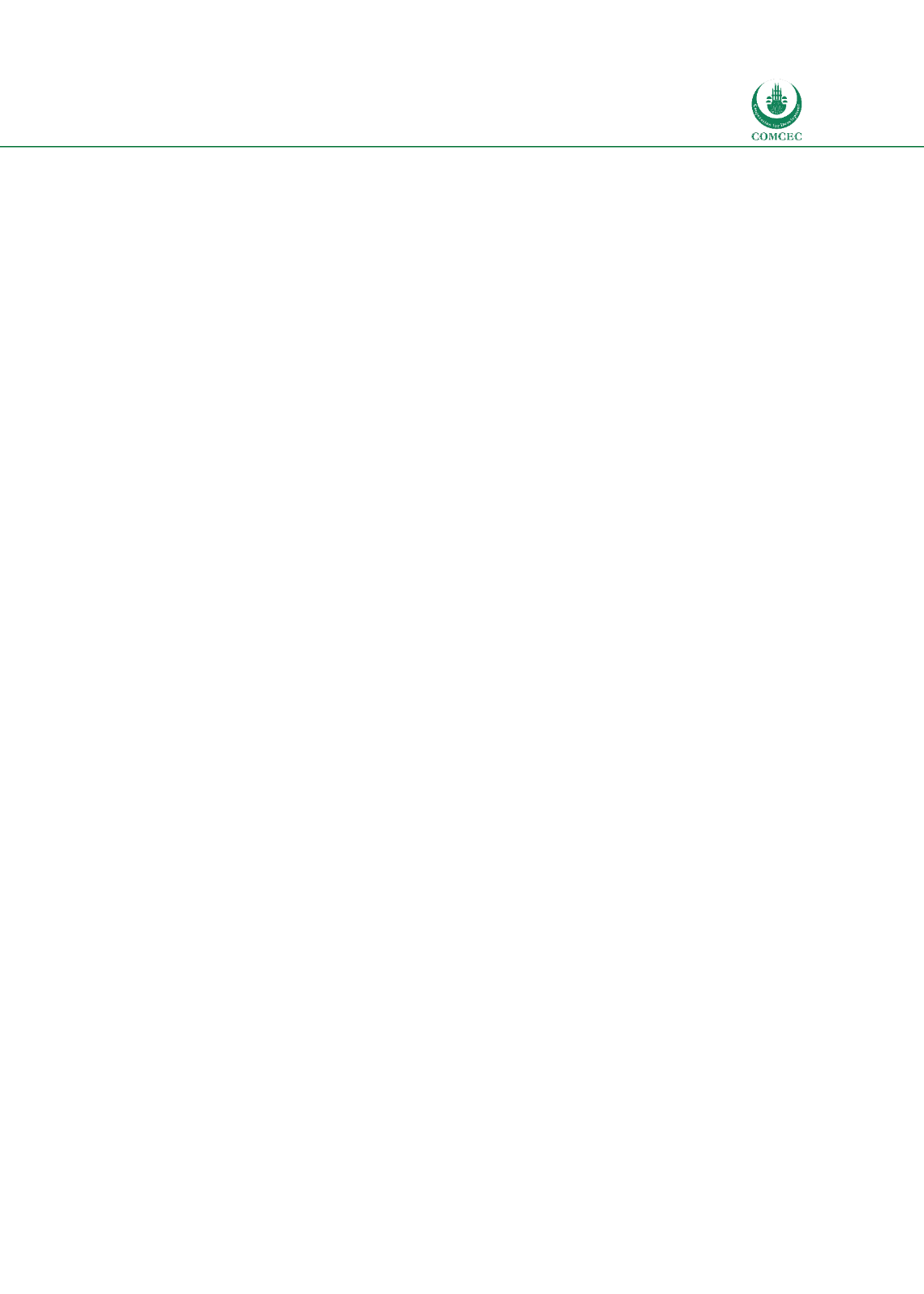

National and Global Islamic Financial Architecture:
Prolems and Possible Solutions for the OIC Member Countries
97
social role, as well as promoting non-interest banking and finance and assist the internal audit
of the institution on
Shariah
compliance audit.
Additionally, the guidelines require institutions to comply with the IFSB/AAOIFI
Shariah
governance guidelines as they are explicit on the guiding principles relating to Competency,
Independency, Confidentiality and the Consistency of the framework of
Shariah
governance.
However, there is no explicit provision requiring the institutions to use AAOIFI
Shariah
standards.
Regarding
sukuk
, rule 570 (3) of the SEC requires that all
Shariah
principles and concepts
applied in structuring an issue, offer or invitation of
sukuk
must be consistent with the general
Shariah
rulings, principles and concepts as approved by the AAOIFI or any other standard
setter recognized by the Commission.
At the institutional level, the guidelines issued by the CBN and NAICOM require that there
should be a dedicated Internal
Shari’ah
Compliance Unit comprising of officer(s) with
appropriate qualifications and experience in Islamic Commercial Jurisprudence and
conventional finance to serve as the first point of reference for
Shari’ah
compliance issues. The
Shari’ah
Compliance Unit also serves as the secretariat to the Advisory Committee of Experts.
The SEC's rule 492, however, requires the Fund Manager to place appropriate systems and
mechanisms within its internal audit requirements to monitor
Shariah
compliance.
4.5.4. Liquidity Infrastructure
The liquidity market in Nigeria is dominated by deposit money banks (DMBs), merchant banks
and microfinance institutions. The major instruments in the liquidity market according to the
Prudential Guidelines issued by the CBN in 2010 include among others: Nigerian Treasury bills
(NTB), Nigeria Treasury Certificates (NTC), CBN Certificates, Certificates of Deposit (CD),
Commercial Papers (CP) and Banker Acceptances (BA).
The Islamic financial institutions in Nigeria are constrained by the interest-bearing nature of
these instruments to actively participate in the liquidity market. It is against this background
that the CBN introduced three (3) non-interest financial instruments in 2012 to facilitate
liquidity management for the Islamic financial institutions as follows: CBN Safe-Custody
Account (CSCA), CBN Non-Interest Note (CNIN), and CBN Non-Interest Asset Backed Securities
(CNI-ABS). The CSCA is based on the
Wadiah
contract between a depositing financial
institution and the CBN with CBN being the custodian. At the discretion of the CBN, the
depositing institution will be given a
hibah
of which the amount will be decided by the CBN’s
Committee of Governors. The CNIN is a financial paper evidencing an interest free loan
instrument between an Islamic financial institution (Lender) and the CBN (Borrower) which
entitles the Islamic financial institution to raise a corresponding interest-free loan from the
CBN. The CBN Non-Interest Asset Backed Securities (CNI-ABS) involves the securitization of
CBN holdings in International Islamic Liquidity Management's (IILM)
sukuk
and/or
sukuk
in
multilateral organizations in which Nigeria is a member. Currently only CSCA and CNIN are
activated while the CNI-ABS is yet to be activated. In addition to these three instruments, the
ijara sukuk
issued by the Osun State Government offers liquidity management avenue for the
Islamic financial institutions. These four available non-interest instruments for liquidity
management in Nigeria, however, do not meet the requirements of High Quality Liquid Assets
(HQLA) as stipulated by IFSB 12 and this implies the infeasibility of Liquidity Coverage Ratio
















